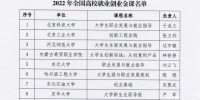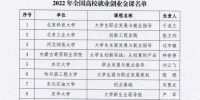[预告]05.20系列讲座《阴阳的哲学》
主办者: 北京师范大学哲学学院伦理学研究所
主讲人: Prof. Michael Slote, University of Miami
主讲人简介:
Michael Slote is now UST Professor of Ethics at the University of Miami and is author of From Morality to Virtue (1992) and Morals from Motives (2001). He was previously professor of philosophy at the University of Maryland, and at Trinity College Dublin.
He is widely recognized as a leading figure in the recently renewed field of virtue ethics. He argues that virtue ethics, in a particular form which draws on the concept of an ethics of care, offers significant intuitive and structural advantages over deontology, utilitarianism, and common-sense morality. He has also recently endorsed the meta-ethical view of moral sentimentalism in opposition to moral rationalism (see his articles from 2003, 2004, 2005a and his books (2007 and 2010)). Most recently he expanded his work on sentimentalism into a philosophy of mind (book 2014). In his latest work he also stresses the importance of perceptivity als a virtue, a value and as a psychological characteristic (article 2014 and book 2013). The significance of receptivity feature was first considered by Nel Noddings in 1984, but did not receive further attention in the ethics of care neither was it used to criticize typical Western philosophical values. In The Impossibility of Perfection, he argues against moral perfection as it was endorsed by Aristotle and the Enlightenment and defends a more realistic view of moral issues. At a seminar in Hong Kong in October 2014, titled "The Philosophical Reset Button: A Manifesto," Slote argued that "Chinese thought has never gone to the extremes of Western rationalism, and there is every reason to think that as China gains in power and prestige throughout the world, Chinese philosophers and thinkers will be in a position to correct or reset Western philosophy through drawing on their own deepest historical traditions, traditions which have recognized the value of emotion and sane ordinary living much more than has been typical in the West. You Chinese should realize that you have much to offer the West and not be too modest with your self-image or reticent with your philosophical ambitions."
讲座语言: 英语(备有英汉双语文本)
第一讲 阴阳新解与道德
Lecture 1: Updating Yin/Yang and Its Morality
[摘要] 当代中国哲学家们不认为古代中国的阴阳概念有多重要,西方哲学家们更是如此。但是如果我们更新这种互补性,我们就能看到它的哲学的重要性。可以把阴理解为受动性或接受性,但是后一种理解更有帮助,把阳理解为包含一种补充的(强的)、积极的和指向性的目的的。成功的人生需要阴和阳之间的一种平衡,这种平衡要借助这两个术语来理解,且,这同一互补性对于落实于日常人类动机和感情的任何道德理解都非常重要。例如,对他人的同情要求我们以移情方式分别地接受他们的需求,且要求对他们有帮助的强的、主动地指向性的目的。又,还可以论证,同情和其他道德上有价值的动机的阴与阳两方面不能被分离。这样,道德生活中的阴与阳就一定以它们传统地被思考的那样是互补的。
[Abstract] The ancient Chinese notions of yin and yang are not considered very significant by contemporary Chinese philosophers, much less by Western ones. But if we update this complementarity, we can begin to see its philosophical importance. Yin can be understood as passivity or receptivity, but the latter understanding is the more useful, and yang can then be understood as involving a kind of complementary (strong) active and directed purposiveness. Successful human lives need a balance between yin and yang understood in these terms, and this same complementarity is essential to any understanding of morality that is anchored in ordinary human motives and emotions. For example, compassion for others requires us to be empathically receptive to their needs and also requires the strong and actively directed purpose of being helpful to them. And the yin and yang aspects of compassion and of other morally valued motives arguably cannot be separated. So in the moral life yin and yang are necessarily complementary in the way yin and yang have traditionally been thought to be.
Part1: Updating Yin and Yang
Part2: The Yin/Yang of Morality
时间: 5月20日(星期三) 14:30—17:00
地点: 北京师范大学 主楼A805
第二讲 阴阳认识论
Lecture 2: The Yin/Yang of Epistemology
[摘要] 西方哲学一向比中国思想更专注于证明人类的知识。但是,阴/阳可以以一种未曾被认识到的方式帮助我们弄清知识论的问题。日常的知觉信念包含一种对我们的感觉“告诉我们”的东西的接受性,就接受性是一种好东西而言,我们可以把阴的观念看作一种有德性的接受性,看作帮助我们看清日常的知觉信念与记忆信念中得到证明的东西或合理性的东西的。但是,我们也根据我们的感觉所告诉我们的东西做归纳的和理论的推理,且在这里,另一种知识的德性——知识的确定性也发挥着作用。在日常生活中(相反于许多西方思想),对于一种现象,我们不需要搜罗许许多多的例子去推导进一步的相关例子和后面的原因,一个不能根据一次失火的例子推出“火是危险的”结论的人表现了一种可悲的知识上的不确定性。我们可以根据确定事物的性质这种德性挑选出得到了证明的思想,这是一个人在推理思考方面具有能力和受到了指导的一种方式。这样就可以表明,更新了的阴/阳可以帮助我们理解经验知识的确证与合理性。
[Abstract] Western philosophy has been more preoccupied with justifying human knowledge than Chinese thought has been. But yin/yang can help us with epistemological questions in a way that hasn’t been recognized. Ordinary perceptual beliefs involve a kind of receptivity to what our senses “tell us,” and to the extent receptivity is a good thing, we can use the idea of yin as virtuous receptivity to help us see what is justified or rational in ordinary perceptual and memory beliefs. But we also make inductive and theoretical inferences from what our senses tell us, and here another sort of epistemic virtue comes into play: epistemic decisiveness. Ordinarily (and contrary to much of Western thought) we don’t need lots and lots of instances of a phenomenon in order to make inferences concerning further instances or underlying causes, and someone who hesitates to infer that fire is dangerous on the basis of a single instance of being burned shows a deplorable epistemological indecisiveness. We can specify justified inferential thought in terms of the virtue of decisiveness, which is a way of being strong and directed in one’s inferential thinking. And it turns out that the yin and yang aspects of empirical thought cannot be separated. So updated yin/yang arguably helps us understand the justification and rationality of empirical knowledge.
时间: 5月22日(星期五)8:30—11:00
地点: 北京师范大学 主楼A805
第三讲 阴阳心灵论
Lecture 3: The Yin/Yang of the Mind
[摘要] 心灵本身是由一种阴/阳样式构成的。信念与欲望是任何发挥作用的心灵的两个核心部分,信念是接受性的,代表着阴,欲望则是主动性的,代表着阳。(中国哲学还没有认识到这一点。)其次,阴/信念包含了阳的因素,阳/欲望也包含了阴的因素,这样,信念与欲望就代表着必要的互补性,它是我们对阴/阳的理解的一个部分。再次,最特别的是,尽管典型的西方意见与此相反,信念不纯然是理智的和不动的,而是包含着某种程度的情感与驱动力。且,真正的欲望需要情感的定向,需要那种对于一个人的知觉信念活动而言必不可少的环境的接受性。最后, “心灵”这个词,连同它的理智论内涵,对于描述人在心理上是如何活动着的都是不充分的,且,中国的术语“心”,即心脏-心灵,似乎对于描述作为所有活动着的心理的基础的阴/阳要准确得多。所以,无疑让人惊奇的是,中国的区分和概念对于理解哲学家们一直致力于研究的“心灵”的根基性的问题似乎是绝对必要的。
[Abstract] The mind itself is constituted in a yin/yang fashion. Belief and desire are the two central features of any functioning mind, and belief is receptive and exemplifies yin whereas desire is active and directed and exemplifies yang. (Chinese philosophy has not recognized this.) Moreover, yin/belief involves yang factors and yang/desire involves yin factors, so that belief and desire exemplify the necessary complementarity that is part of our understanding of yin/yang. Most particularly, and despite typical Western opinion to the contrary, belief is not purely intellectual and inert, but involves a certain degree of emotion and motivation. And genuine desire requires emotional dispositions and the kind of receptivity to one’s surroundings that is necessary to perceptual believing. In the end, the word “mind” with its intellectualistic connotations seems inadequate to describing how humans psychologically function, and the Chinese term xin, i. e., heart-mind, seems far more accurate for describing the yin/yang that is the basis of all functioning psychology. So, no doubt surprisingly, Chinese distinctions and concepts seem absolutely necessary to understanding fundamental issues about the “mind” that philosophers have long been preoccupied with.
Part 1: The Emotional Character of Belief
Part 2: The Mind is a Yin/Yang Thing
时间: 5月27日(星期三)14:30—17:00
地点: 北京师范大学 主楼A805
联系人:
王江伟 手机:13810663648 电子邮箱: [email protected]
卢明静 手机:13269153452 电子邮箱: [email protected]
(哲学学院)



